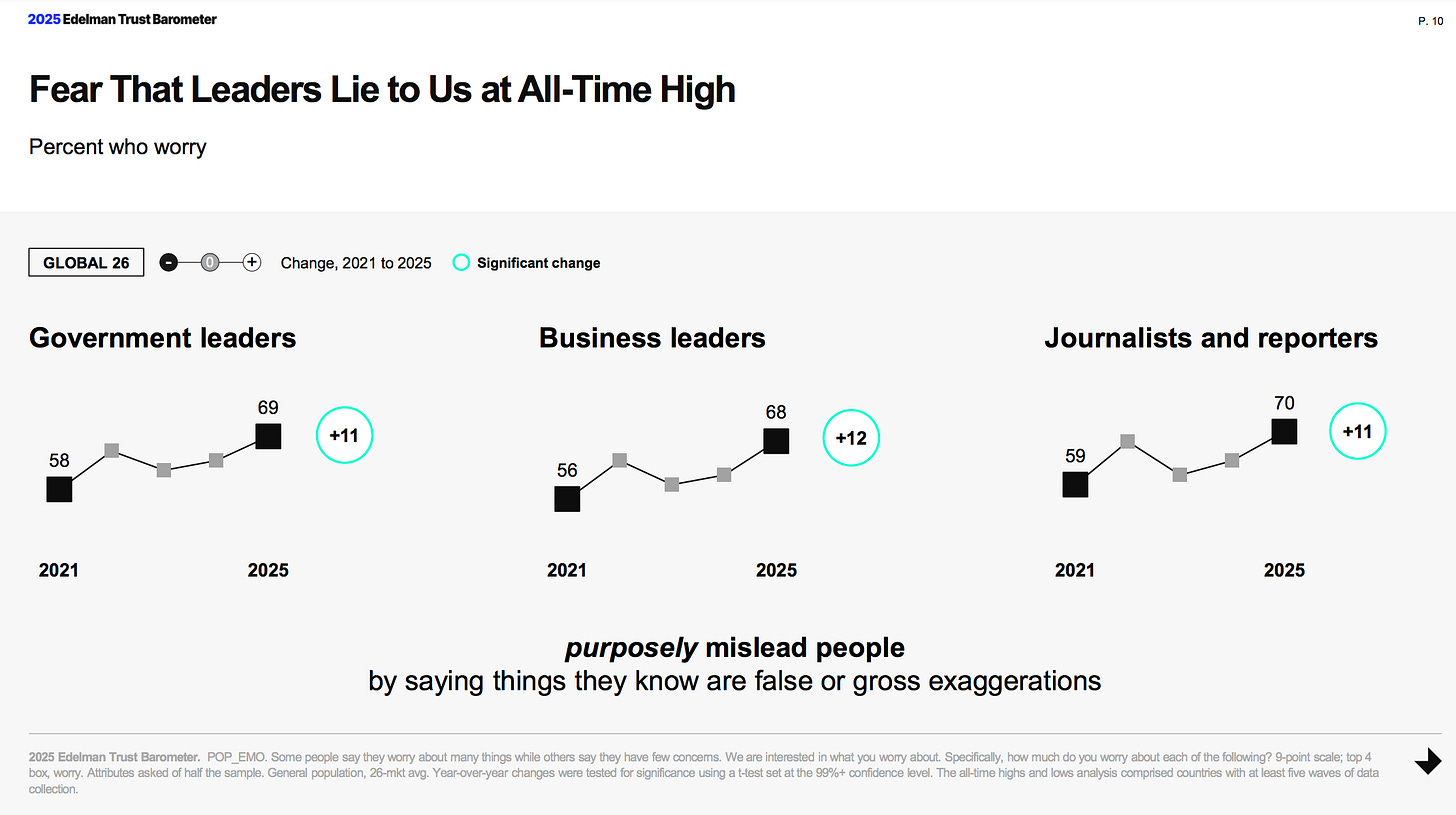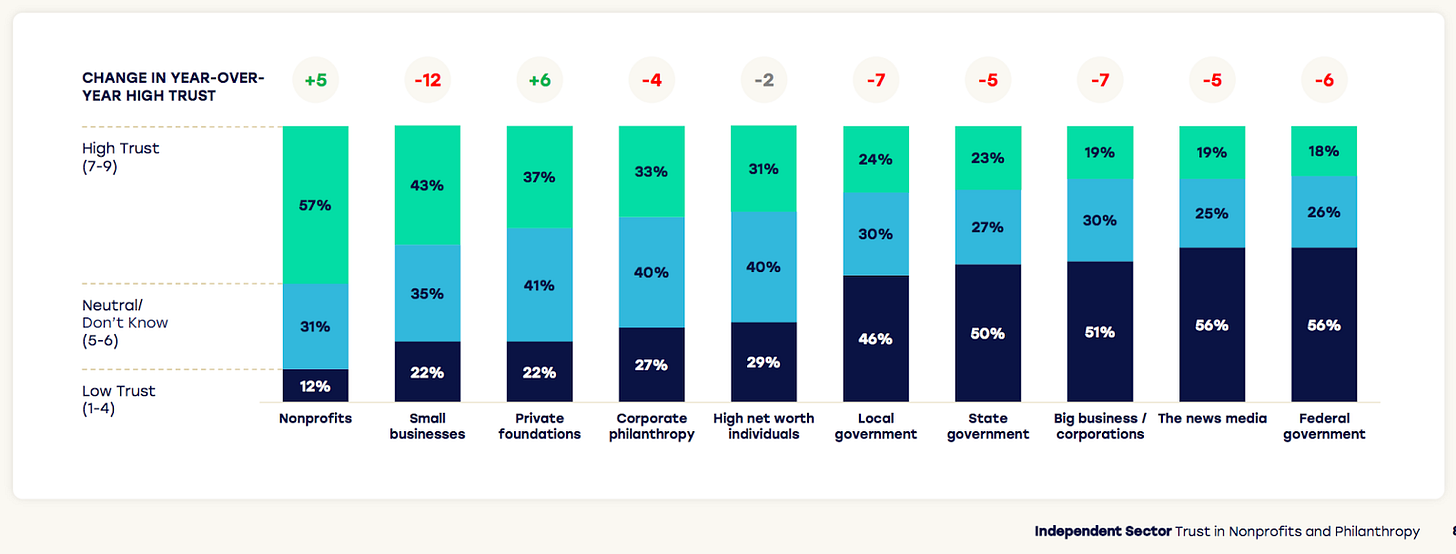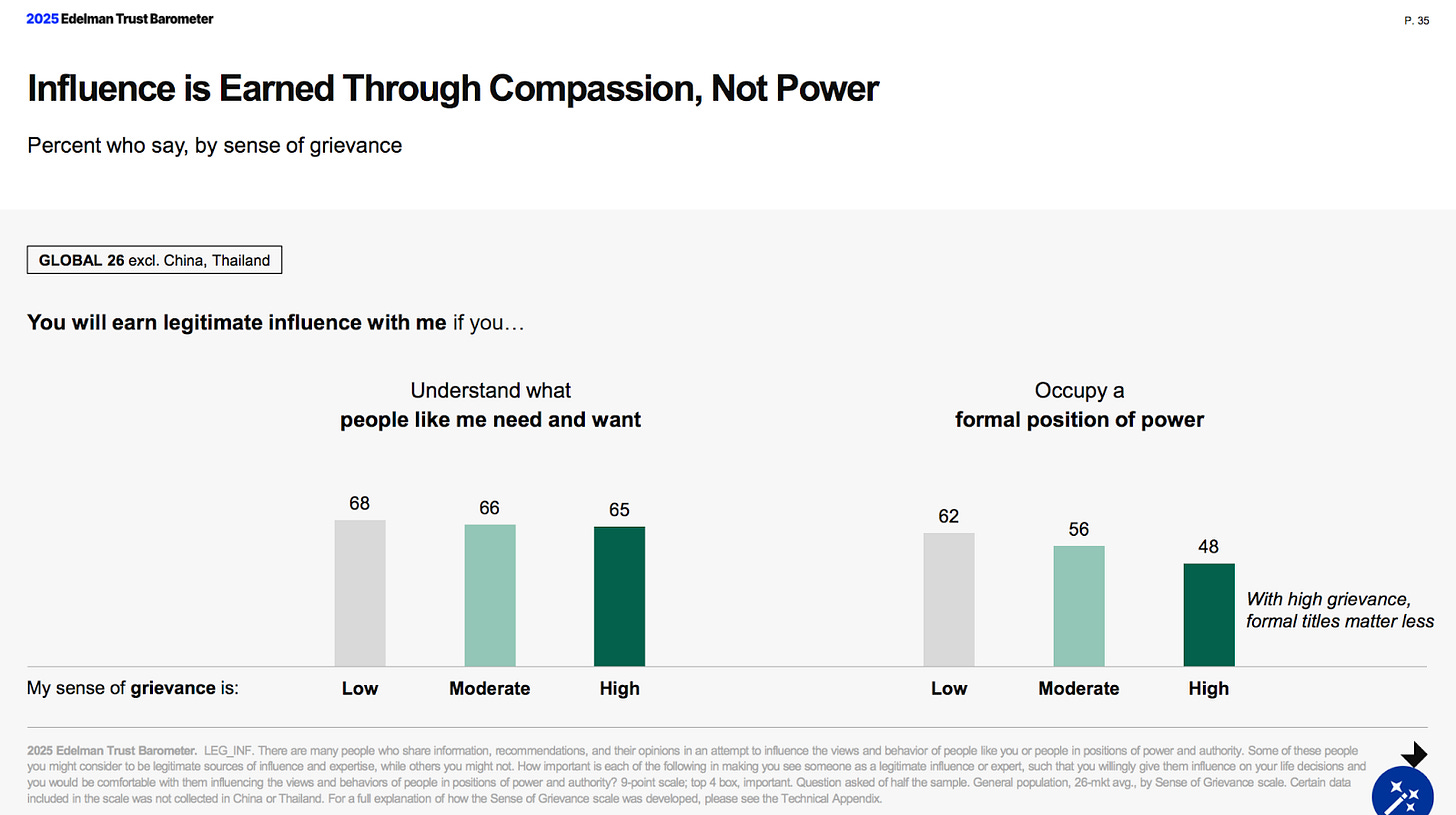Is philanthropy the antidote to division and declining trust?
Trust ˈtrəst noun : assured reliance on the character, ability, strength, or truth of someone or something : one in which confidence is placed
“To be trusted is a greater compliment than to be loved.”
― George MacDonald
Who and what do you trust? In an era fraught with misinformation, intentional suppression of facts, and a perpetual tsunami of conflicting news and opinions, the answer for most of us is fewer and less.
According to the 2025 Edelman Trust Barometer, 7 of 10 adults surveyed from 28 countries believe government, business leaders, and journalists intentionally mislead the public. Belief that business leaders knowingly lie has increased 12% since 2021; government leaders and journalists trail only slightly with an 11% increase during the same period.
The abysmal state of trust among us has resulted in what Edelman CEO Richard Edelman calls a grievance crisis: widespread sense of distrust, resentment, and perceived injustice directed at business, government and other institutions. We all feel it and see its negative impacts on ourselves and our communities. But what to do about it?
"Moving back from a grievance-based society will require a cross-institution effort to address issues like information integrity, affordability, sustainability, and the future of AI,” Edelson says.
Is philanthropy our best hope?
Philanthropy relies on trust. Donors’ must trust that contributions will be used efficiently and effectively for the purpose promised or they stop giving. Volunteers must trust that their time will be well used and valued or they stop showing up. Program recipients must trust they will receive services they need without discrimination or judgment or they go elsewhere or without.
“Nonprofits stand at the forefront of social impact, transforming communities and lives every day. But no mission—no matter how noble—can thrive without the confidence of its supporters,” notes Shannon McCracken, CEO of The Nonprofit Alliance. “Trust is our sector’s greatest currency, and we must guard it fervently.”
While not immune from declining trust, nonprofits are faring better than other sectors. Although trending downward, respondents in 11 of 28 countries surveyed by Edelman expressed trust in nonprofit and nongovernment organizations. Americans are among them. The Nonprofit Alliance’s most recent survey found: “69% of Americans trust (completely, moderately, or somewhat) nonprofits to operate effectively and act in the best interests of all stakeholders, including customers, donors, and community members.” Another report, this one from Edelman and Independent Sector, a nonprofit dedicated to strengthening the nonprofit sector, found trust in nonprofits increased five points in 2024 to 57% following four years of decline.
Further, Edelman and Independent Sector found Americans have greater faith in nonprofits to reduce divisions than we do in corporations, government, or media to do so. At a time when 74% of Americans are concerned about the direction of our country and 94% are worried about growing divisions, perhaps it is time to go all in on philanthropy. Before it is too late.
Time is of the essence. Not only is our current state of trust and division unsustainable, the nonprofit sector itself is at risk. Importantly, the Independent Sector/Edelman study found that while trust in nonprofits increased, trust in private foundations and high-net-worth individuals is significantly lower—at 33%, about the same as the previous year but considerably lower than in 2020. The current trend of fewer Americans giving and nonprofits increasingly relying on support from private foundations and high-net-worth individuals is a threat.
Philanthropy is needed now. Both to meet increasing needs and to bring us together.
According to the Edelson Trust Barometer findings, compassion and understanding—two nonprofit strengths—are key to influencing change. Is it time to prioritize philanthropy in our lives, and support and amplify its impact in our society? Not philanthropy that centers the wealthy at the expense of the many, but philanthropy that embraces and supports us all. I certainly hope so.







